
- Home
- India
- World
- Premium
- THE FEDERAL SPECIAL
- Analysis
- States
- Perspective
- Videos
- Sports
- Education
- Entertainment
- Elections
- Features
- Health
- Business
- Series
- In memoriam: Sheikh Mujibur Rahman
- Bishnoi's Men
- NEET TANGLE
- Economy Series
- Earth Day
- Kashmir’s Frozen Turbulence
- India@75
- The legend of Ramjanmabhoomi
- Liberalisation@30
- How to tame a dragon
- Celebrating biodiversity
- Farm Matters
- 50 days of solitude
- Bringing Migrants Home
- Budget 2020
- Jharkhand Votes
- The Federal Investigates
- The Federal Impact
- Vanishing Sand
- Gandhi @ 150
- Andhra Today
- Field report
- Operation Gulmarg
- Pandemic @1 Mn in India
- The Federal Year-End
- The Zero Year
- Science
- Brand studio
- Newsletter
- Elections 2024
- Events
How flowers of Kanyakumari spell fragrance and livelihood opportunities

A week ago, Ashok, a flower farmer in Thovalai, a remote village 9 km from Nagercoil in the Kanyakumari district of Tamil Nadu, underwent a surgery to cure the varicose veins on his legs. Even though the treatment and cure took a week, Ashok was thinking about plucking and selling the kozhikondai poo (hen’s horn flower) that he planted a couple of months ago. Being a farmer, Ashok knows...
A week ago, Ashok, a flower farmer in Thovalai, a remote village 9 km from Nagercoil in the Kanyakumari district of Tamil Nadu, underwent a surgery to cure the varicose veins on his legs. Even though the treatment and cure took a week, Ashok was thinking about plucking and selling the kozhikondai poo (hen’s horn flower) that he planted a couple of months ago. Being a farmer, Ashok knows the importance of timing when it comes to cultivation of flowers. If you don’t sell the flower at the right time, then you lose the game, he says.
The MGR flower market in Thovalai opens in the early hours of the day, and the sale ends at around 12 pm. Historians believe that flower cultivation in Thovalai started in the early 18th century. A perfect weather for flowers with suitable soil and water made this town a flower capital of Kanayakumari. Flower cultivation is the main livelihood of people in this village.
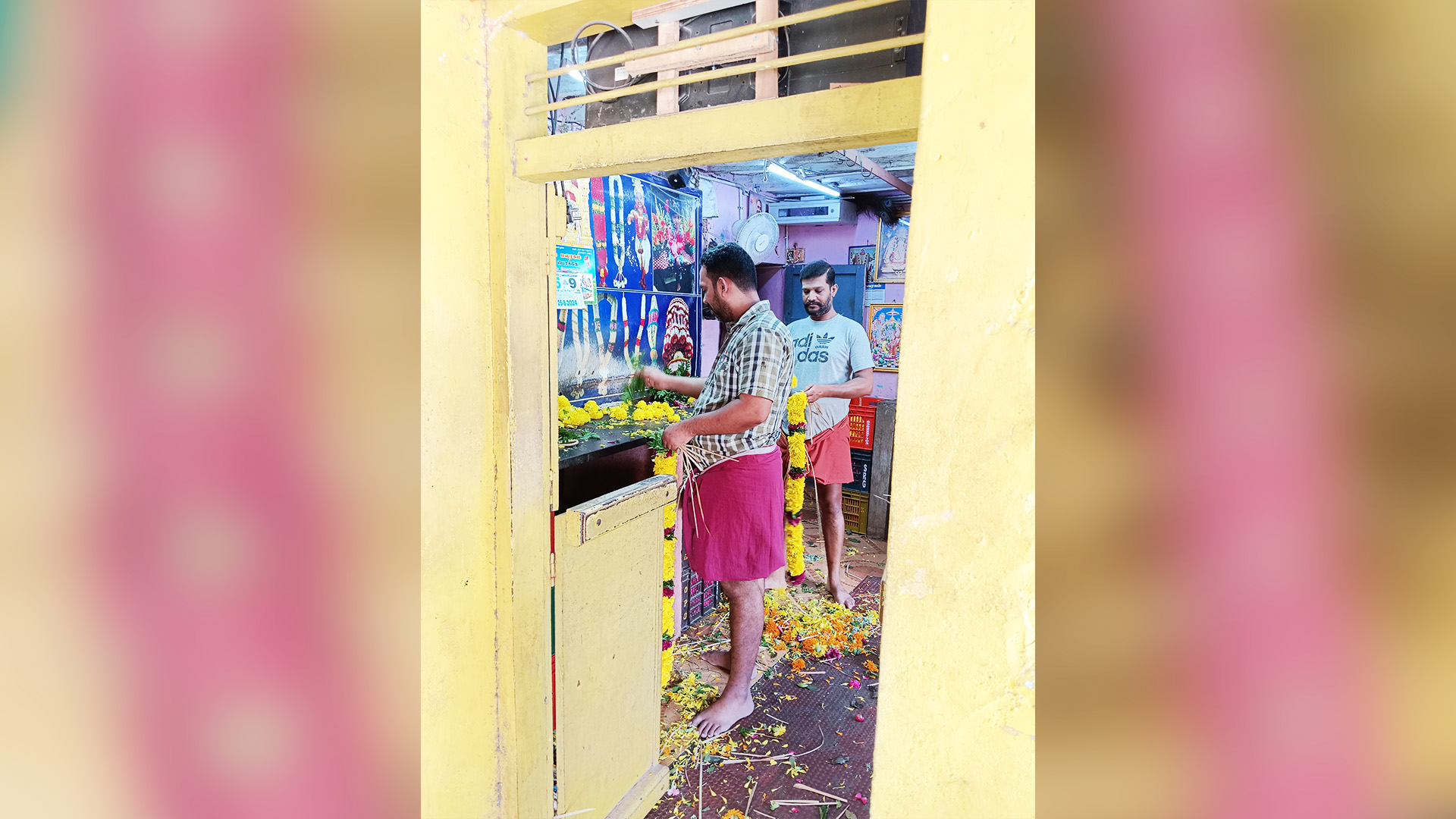
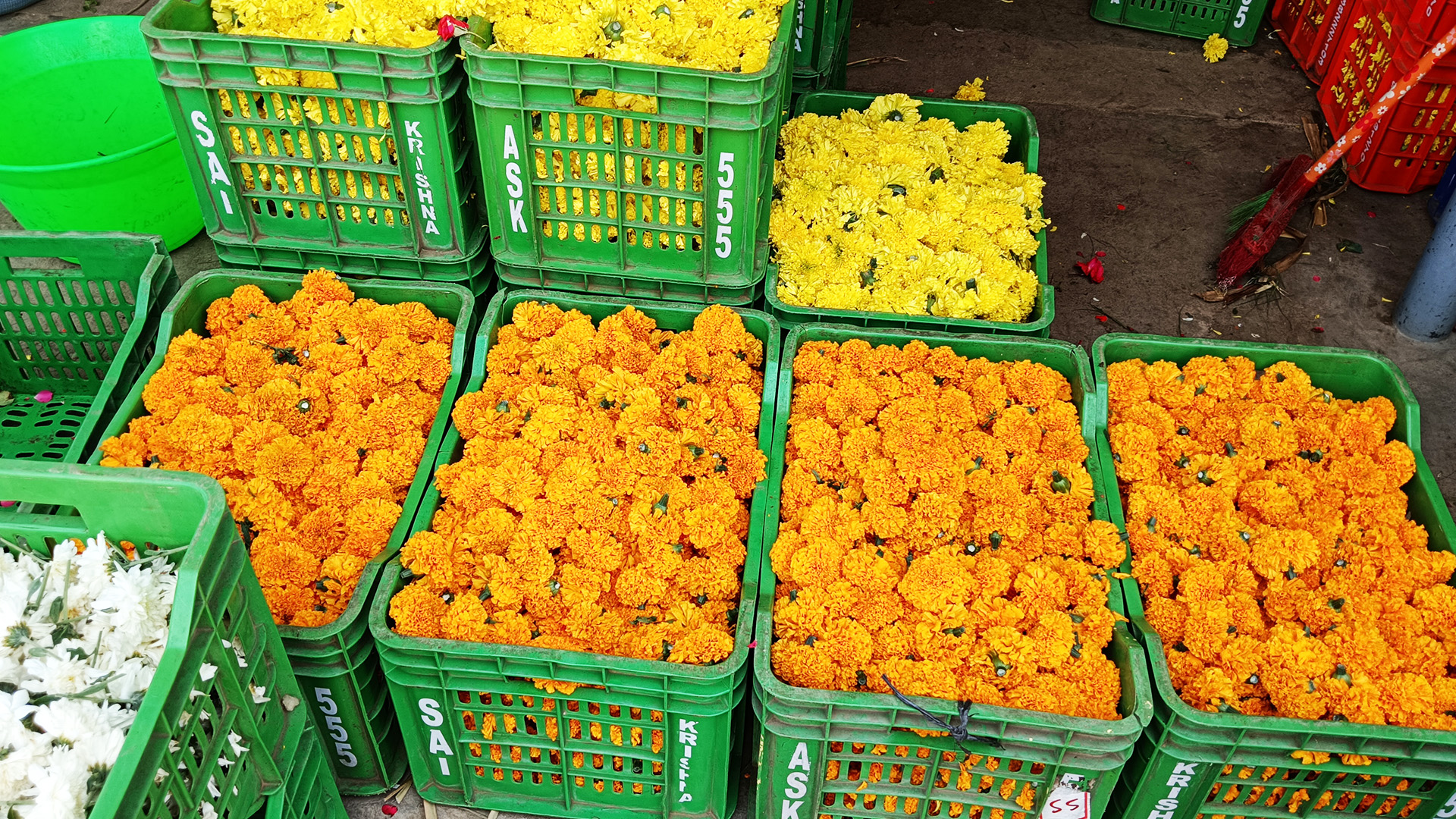
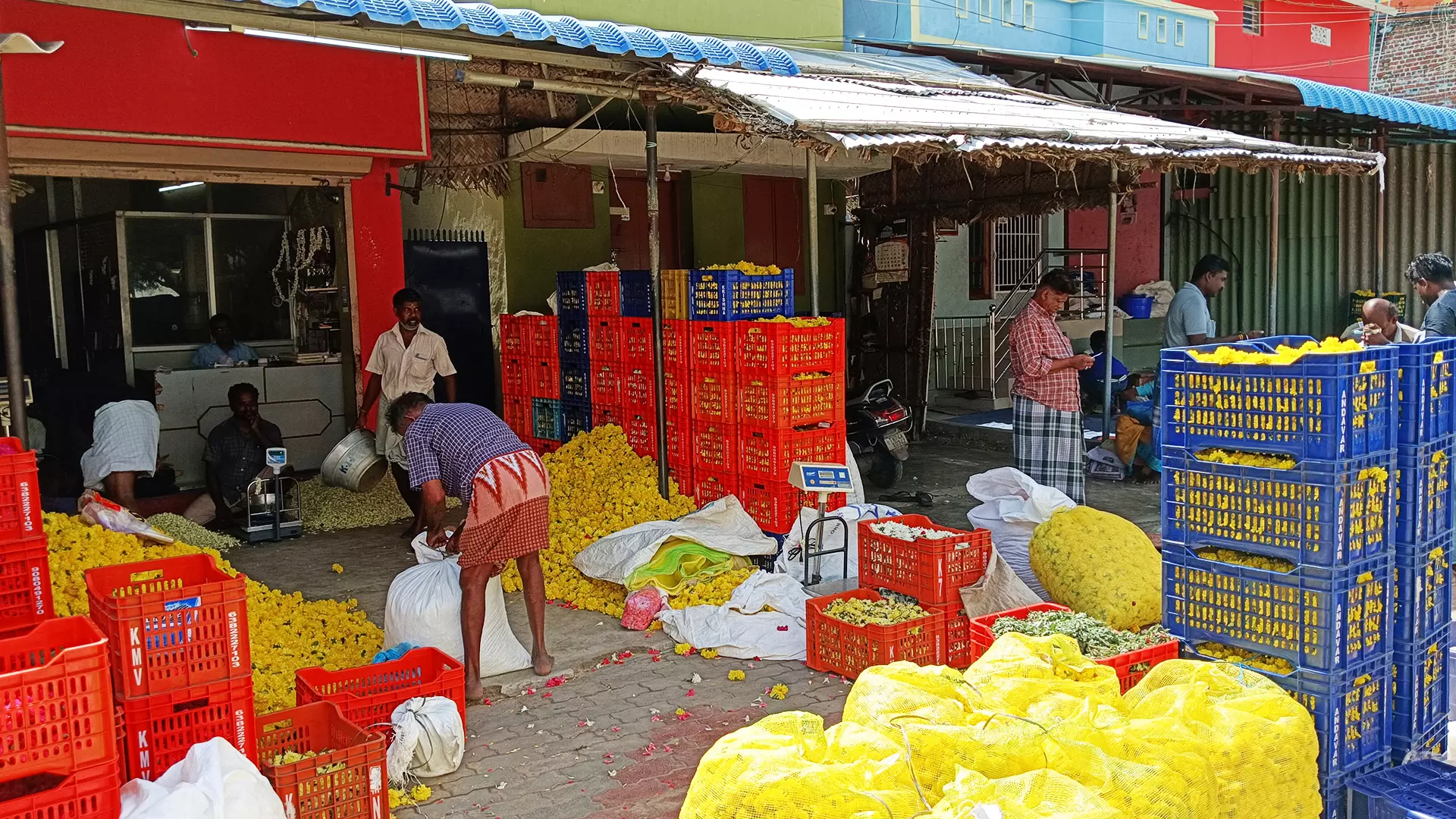
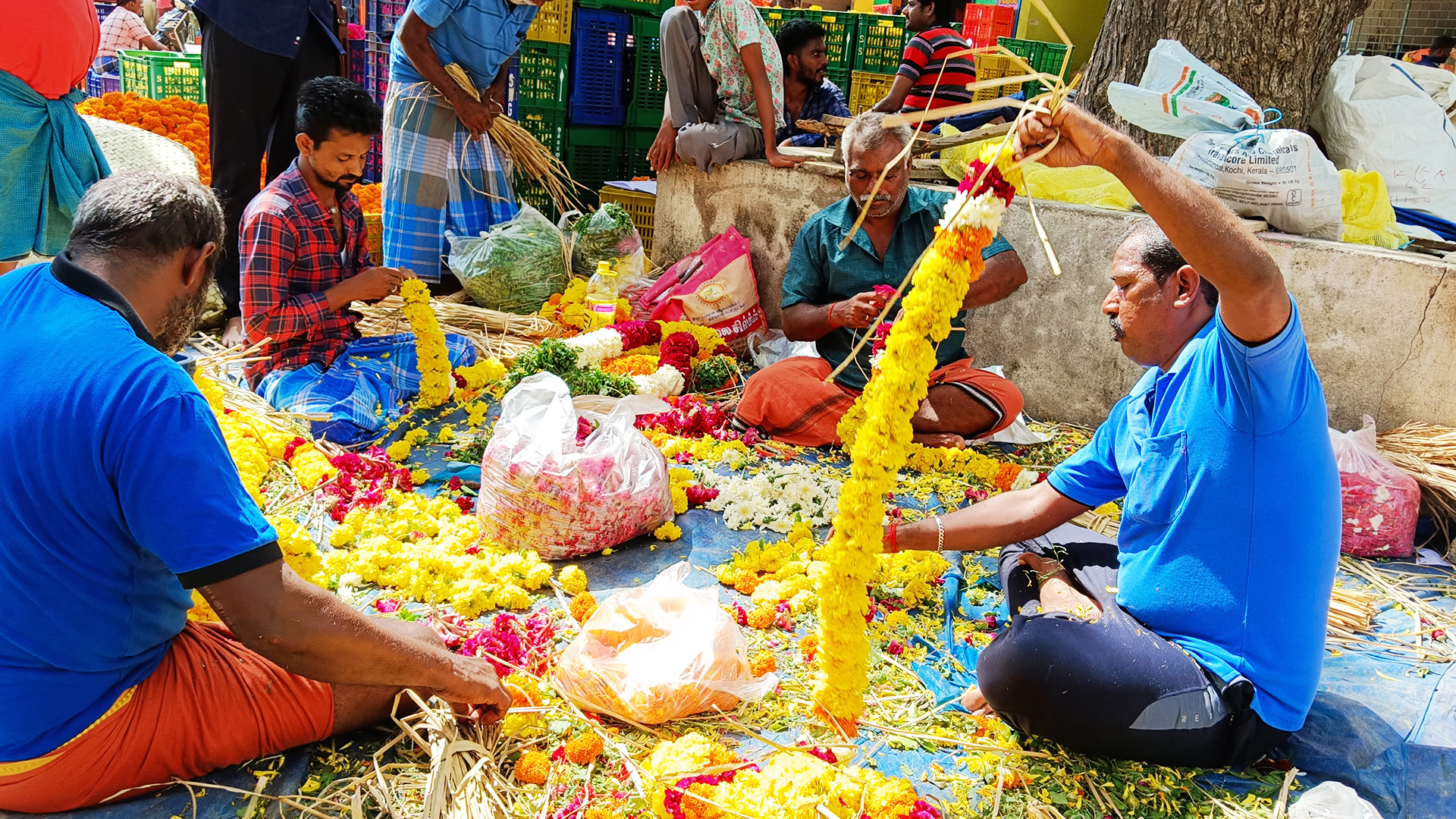
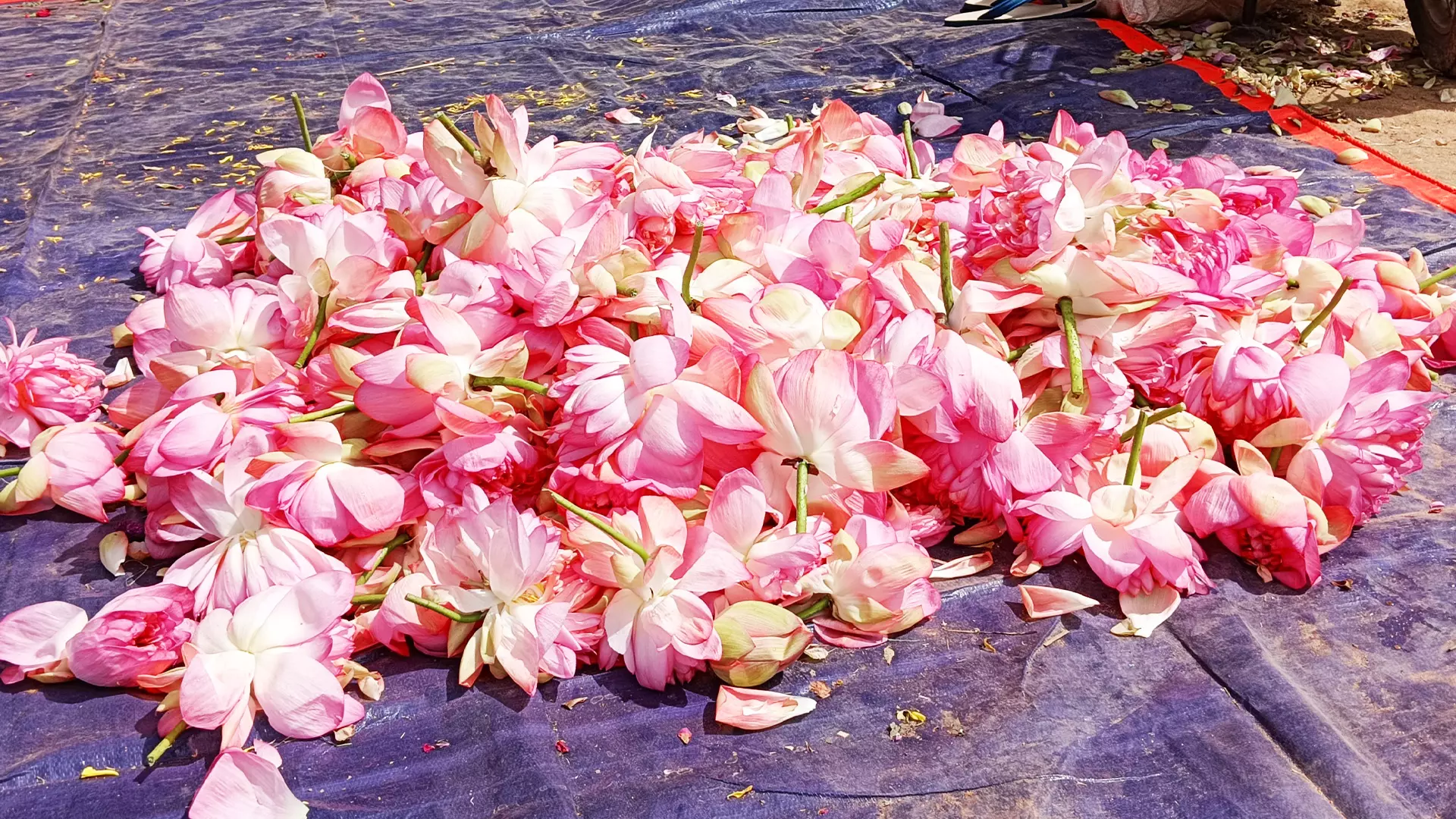
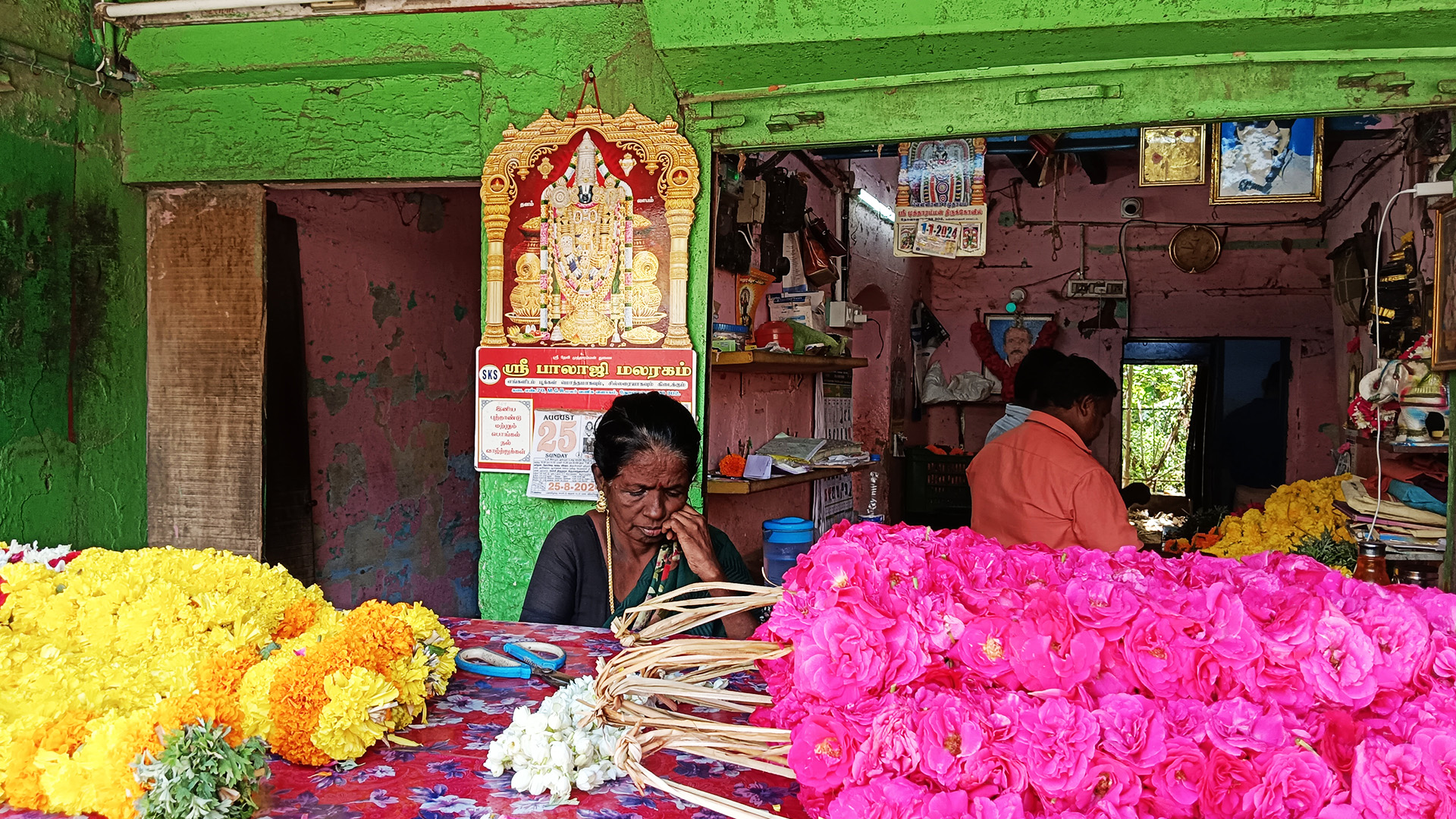
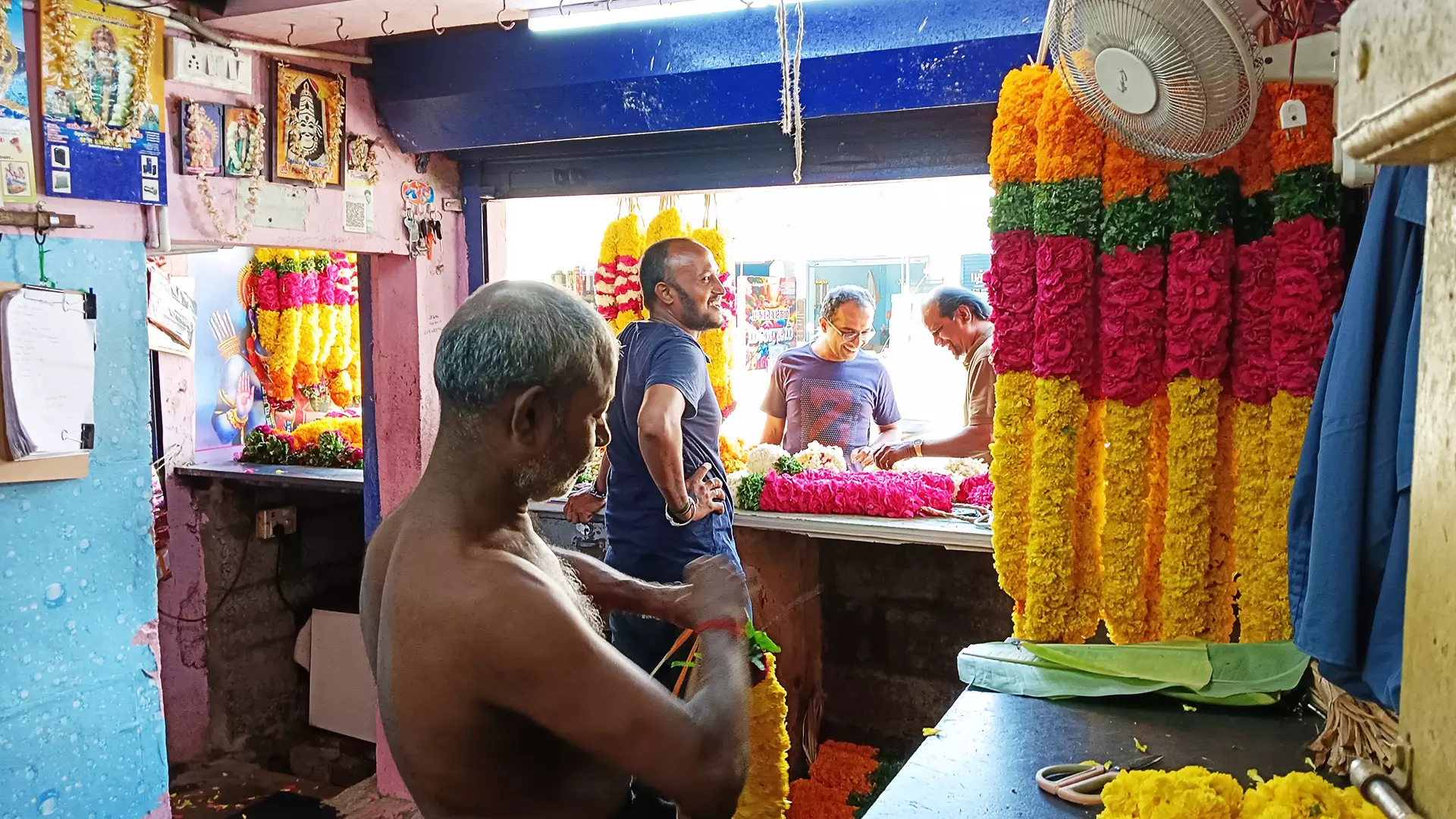
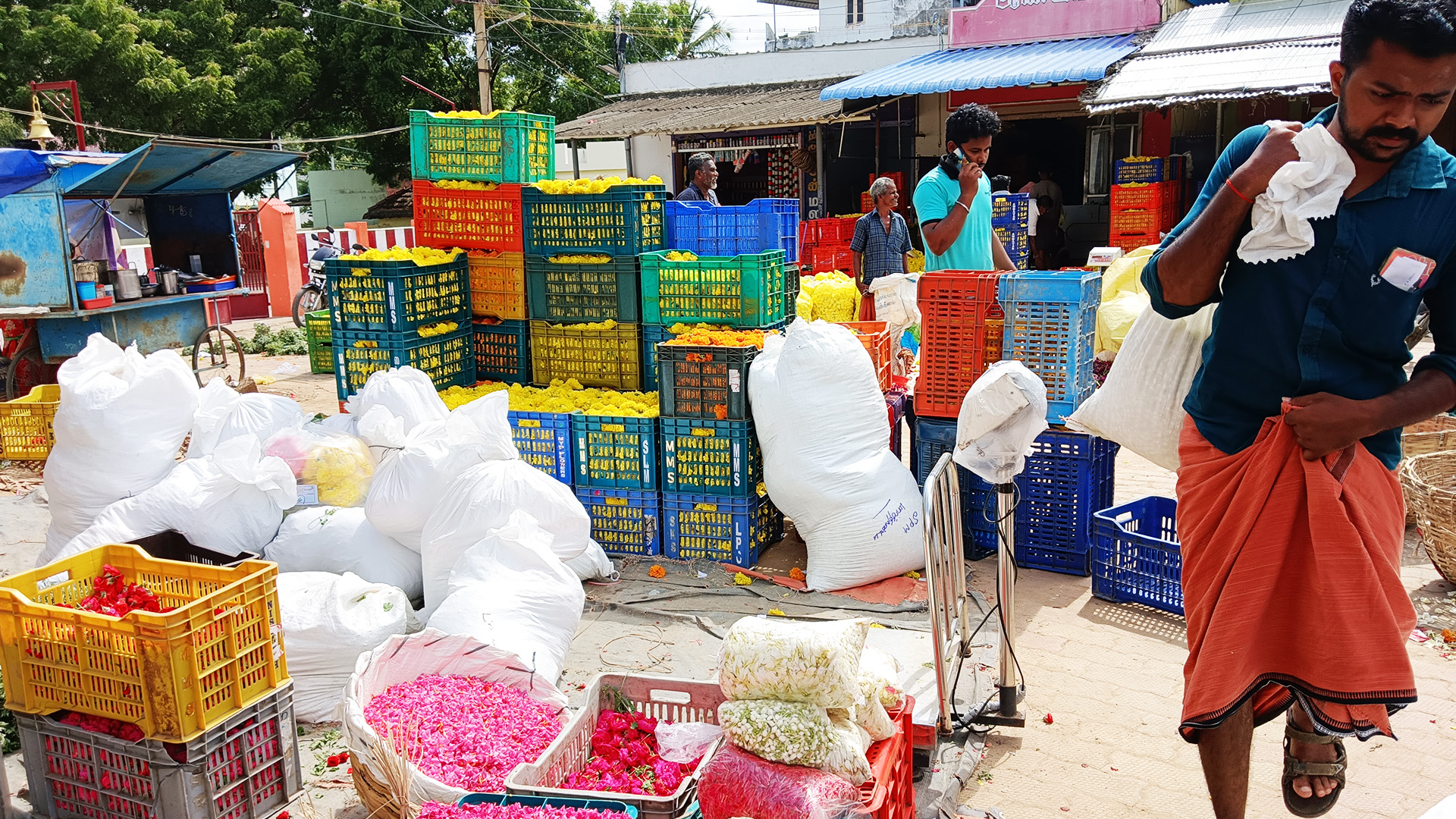
At least 80% people are actively involved in activities such as cultivation, harvesting, distribution, garland making and marketing, according to S Murugapoobathi, assistant professor of commerce at Vivekananda College, Agasteeswaram. Pitchi (wild jasmine), Malligai (Jasmine), Rose, Vadamalli (Bachelor's button), Marigold, kozhikondai poo, Arali (oleander), Kanakambaram (firecracker flower), Chevanthi (chrysanthemum), Tulsi (ocimum sanctum), and Champangi (champak) are the main flowers cultivated here.
Festival, of course, is the time when flowers sell like hot cakes. The price will go up exponentially. “It is like a tight ropewalk,” says Arokya Sami, a flower seller in Thovalai. “Even though we sell the flowers, we are not getting the money that we deserve. The influence of middlemen is high. So small-scale farmers like us are facing a lot of problems,” he added. Even though hundreds of vehicles loaded with various flowers go to various places in Tamil Nadu and Kerala from Thovalai, the flower farmers say it is a matter of luck.
K Nagarajan, another farmer, said he has been cultivating and selling flowers in Thovalai since 1991. “My father was a flower farmer and that’s how I came to this field. Earlier, the market in Thovalai depended mainly on the local farmers. Today, flowers come to the market from various places such as Bengaluru, Hosur and Tirunelveli. Even though many farmers here cultivate flowers, they face a stiff competition because of flowers coming from outside,” he said. However, Ravi, a graduate-turned-farmer, said profit and loss are the sides of a coin.

Manikkamalai, the unique garland of Thovalai. Photos: MT Saju
“There is no constant return in this trade. Flowers are a perishable commodity. If you make a profit today, you may make a loss tomorrow. The role of nature is also important in this business,” he said. Ravi said he shifted to the flower business after completing his post-graduation in economics. “Flower cultivation is the main livelihood of people in Thovalai. Even though some shifted their traditional flower cultivation and moved to other fields, it has not affected the local production of flowers,” he said.
The flowers from the market mostly go to places like Kanyakumari and Kerala’s Thiruvananthapuram and Kollam. As Kerala celebrates Onam, the farmers are busy. “We get a fairly good rate for our flowers during Onam, the famous festival of the Malayalis. Flowers are in huge demand because the ten days of Athappookalam in every household attract flowers of various types. So there is a huge demand for flowers now. I sold all my flowers a week ago,” said Mariappan.
Although a flower market is meant for selling flowers, it creates a group of artists in and around it. Flower stringing is an art in itself. Like many flower markets in India, Thovala also has its own special garlands and expert garland-makers. Manikkamalai is one of its kind of garland associated with Thovalai. Making this type of garland using red and white oleander flowers needs special skill. “As the name sounds, once completed the oleander flowers strung on the garland will look exactly like gems (manikkam in Tamil). I have been making Manikkamalai for the last six years. I learnt it from my father. Manikkamalai is mainly used for rituals and festivals in temples,” said Raju, an expert in making this type of garland. Historians say the king of erstwhile Travancore liked the intrinsic pattern of the garland when he first saw it. He eventually ordered the garland-makers of Thovalai to send Manikkamalai to the presiding deity of the Sree Padmanabhaswamy Temple in Thiruvananthapuram on a regular basis crossing the border, and the custom is being followed even today.
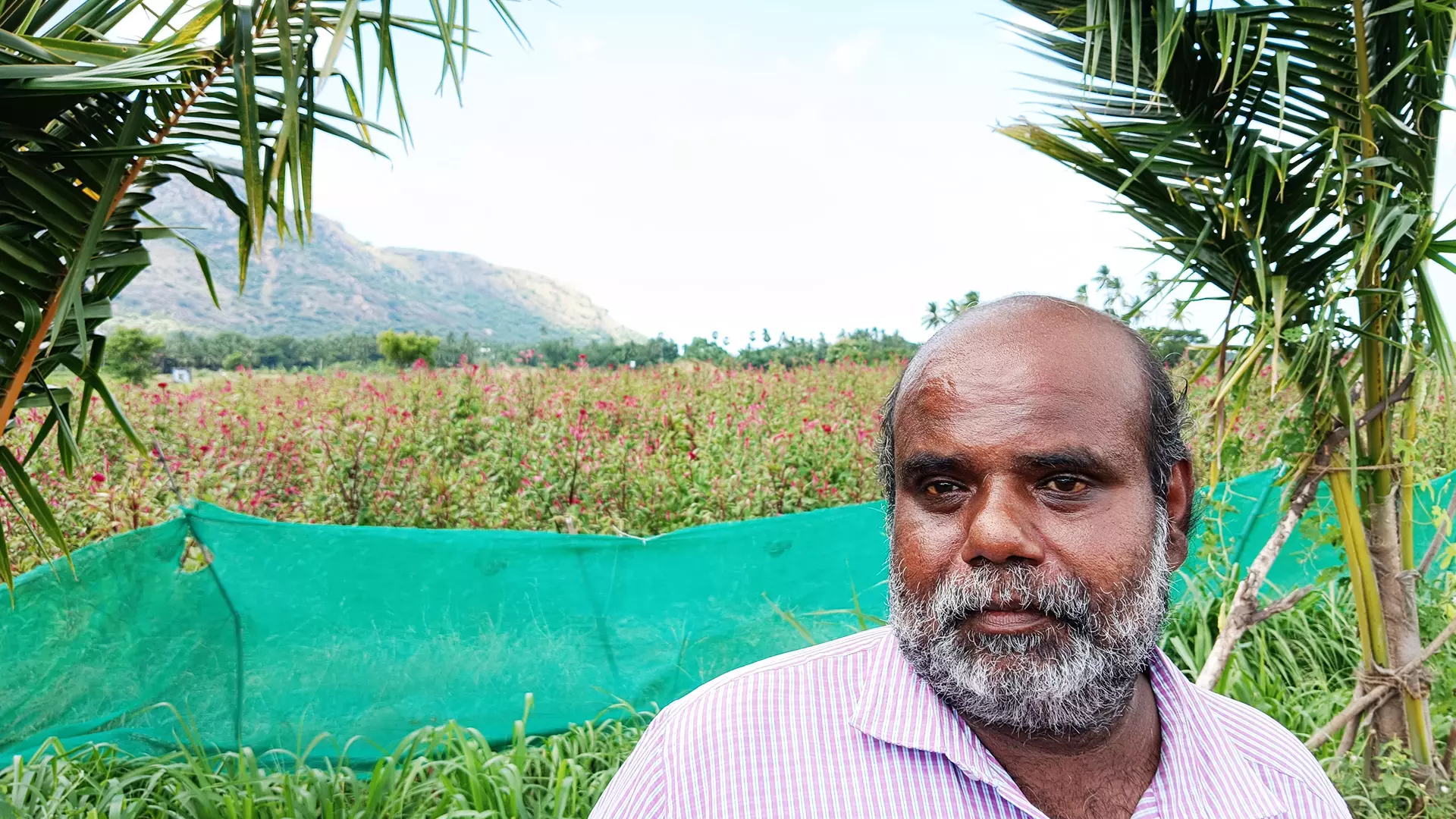
Ashok in front of his Kozhikondai Poo cultivation.
Cultivation of flowers is a lucrative business to various farmers and this is an important crop which helps to increase the economic condition of the flower growers. At the same time, cultivation of flowers is not at all an aromatic proposition and marketing of flowers remains highly unorganised,” writes S Murugapoobathi in a research paper titled “A study on production and marketing of flowers in Thovalai taluk in Kanyakumari district,” published in Review of Research journal. He says marketing of flowers poses more problems compared to other agricultural commodities as they have a high degree of perishability and steady decline in price. “The flowers are affected by the problems like time of sales, price fluctuation, non-availability of fertile seedling, high wage rate, non-availability of labourers, high transport cost and commission and malpractice by the middlemen. In addition to that, inadequate technical know-how and government’s apathetic attitude have compounded the problems of cultivation and marketing of this crop,” he added.
Muniyandi, a flower vendor, doesn’t know how many tons of flowers reach the Thovalai market daily. He is concerned only about his one and only basket full of jasmine and oleander. “I buy the flowers from the market and sell them to people. I once had an acre of flower cultivation but I lost all because I was poor in marketing those flowers. Today, I don’t need to worry as I have only a basket full of flowers to sell,” says the 65-year-old.
Flowers come and go, and so do festivals and rituals. Farmers like Ashok love Thovala despite the perishable nature of the flowers that they cultivate. "Flowers give us energy and here we live with flowers. And we feel we are close to nature,” he says.
